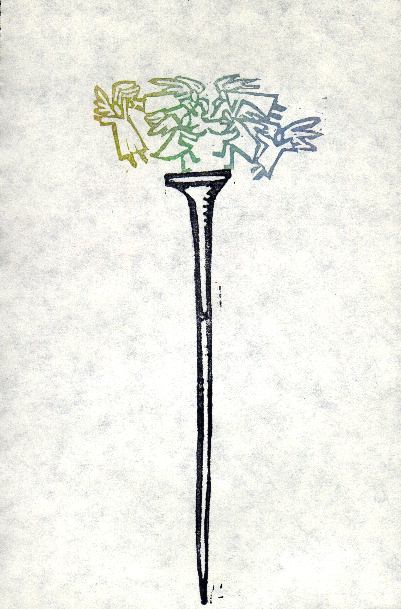totally agree with this. He was certainly knocked over, but I don;t see any "held and brought to ground"
OK agreed, let's go with this -- [and if 15 doesn't apply then it makes it a much more interesting example to discuss].
So in this example we have a ball on the ground, no tackle, so it's Law 14 territory
- the ball is on the ground because it was dislodged in an attempted tackle
- White is on the ground because he has been [legally] knocked over by Black
Now, the game is to be played by players on their feet.
But if you say that that white cannot immediately play the ball then you have the curious situation that
- a player who has been knocked over by an opponent near the ball, has less rights than a player who has deliberately gone to ground near the ball
which seems a curious outcome, doesn't it, in game to be played by players on their feet?
the game is to be played by players on their feet, but you are rewarded for going off your feet deliberately.
Here's the law again (my bold)
[LAWS]DEFINITIONS
This situation occurs when the ball is available on the ground and a player goes to ground to gather the ball, except immediately after a scrum or a ruck.
It
also occurs when a player is on the ground in possession of the ball and has not been tackled.
The Game is to be played by players who are on their feet. A player must not make the ball unplayable by falling down. Unplayable means that the ball is not immediately available to either team so that play may continue.
A player who makes the ball unplayable, or who obstructs the opposing team by falling down, is negating the purpose and Spirit of the Game and must be penalised.
A player who is not tackled, but who goes to ground while holding the ball, or a player who goes to ground and gathers the ball, must act immediately.
14.1 Players on the ground
(a)
A player with the ball must immediately do one of three things:
Get up with the ball
Pass the ball
Release the ball.
Sanction: Penalty kick
(b)
A player who passes or releases the ball must also get up or move away from it at once.
Sanction: Penalty kick
(c)
A player without the ball must not lie on, over, or near the ball to prevent opponents getting possession of it.
Sanction: Penalty kick
(d)
A player on the ground must not tackle or attempt to tackle an opponent.
Sanction: Penalty kick
[/LAWS]




